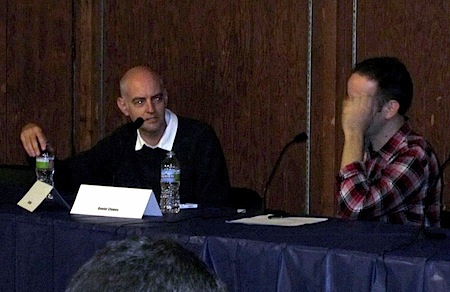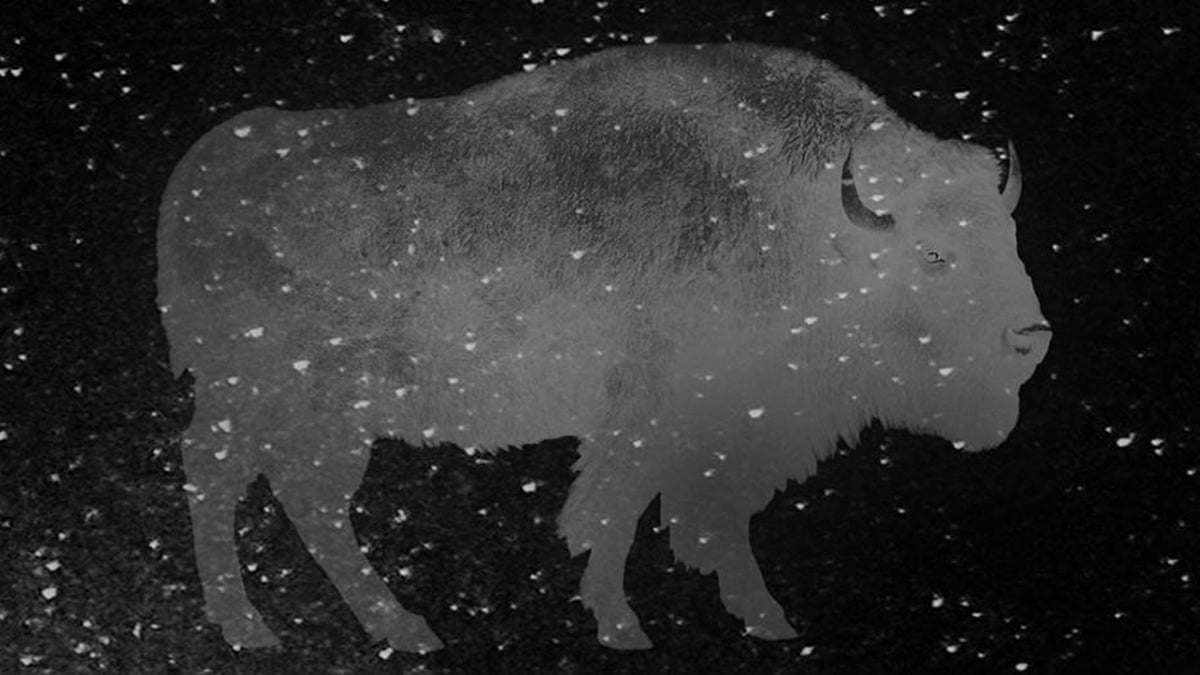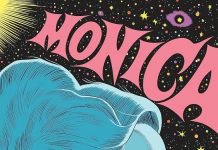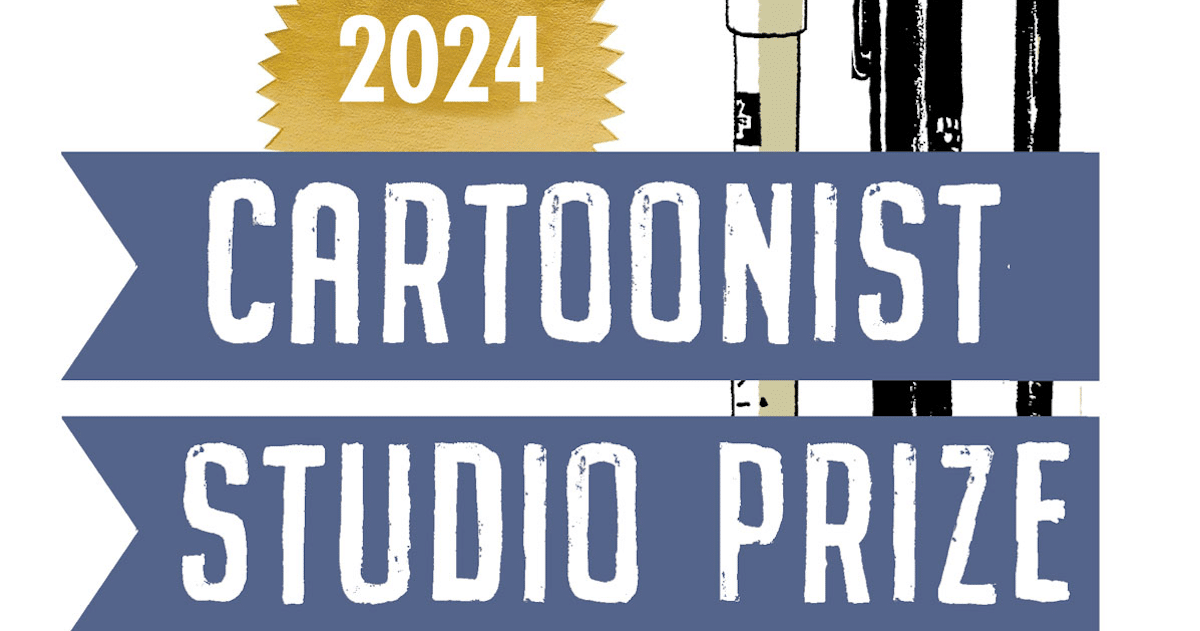Should comics panels be written about or recorded for all to hear?
This panel report from APE of Dan Nadel interviewing Daniel Clowes has been linked everywhere, probably because it’s such a thorough write-up. There’s lots of dish on other cartoonists, and anecdotes from the history of alt.comix:
Clowes told a story how the first panel he was ever on was comprised him, Robert Crumb, Gilbert Hernandez, Peter Bagge and Burne Hogarth. Hogarth spent the entire panel yelling at the independent cartoonists on the panel, saying how they were horrible artists.
“He spent almost an entire hour saying how we were the worst artists who ever lived,” recalled Clowes. “It was an audience full of young, hipster kids who wanted to see Robert Crumb and Crumb was not saying a word because Hogarth was rambling on. People started yelling out, ‘Shut up, old man!’ and finally Crumb just slowly leaned back in his chair and did a pratfall. Hogarth didn’t miss a beat, though, he just kept on going. I literally did not say a word on that panel.”
It’s probably been widely quoted because instead of the usual “Where did you get your ideas for WILSON?” questions, Nadel is comfortable enough with Clowes to just rap about comics, as suggested by Peggy Burns.
There’s finally audio of the panel up at Comics Comics, so you can listen for yourself.
Which reminds me of a growing beef — why is the set-up for recording panels at conventions so crap? During the ICV2 Digital and Comics Conference I tried to record them on my Mac but the ambient room audio eluded my technical ability. Milton Griepp used his little dictaphone but the quality wasn’t the best. I have to admit, I think we both screwed the pooch there with something that the average 12-year-old would be able to handle.
I recorded a few NYCC panels with my iPhone — the quality is fine for spoken word purposes. It takes a few minutes to clean and upload the audio files. In short, this is child’s play. So why aren’t all comics panels routinely recorded? I was told that at PAX, the video game conference, they record all the panels and CHARGE for the audio.
Part of this may be the lowly origins of the comic book convention panel. Having been on untold panels in my lifetime, I can attest to the fact that they range from horrific hungover Sunday exercises in awkward phrasing and long pauses best left in the scrapheap, to stimulating once-in-a-lifetime meetings of the mind. But of late it turns out we comics folks have a lot to say and a lot of Internet to say it on. Perhaps the time has come to archive more of these slices of history.
Thankfully, someone with a decent mike was able to record the Nadel/Clowes panel. But we’ve lost a lot of other pieces of our comics heritage along the way. Unless they are all in Mike Catron‘s garage somewhere….but that is a post for another time.









It drove me nuts that no one recorded the critics’ panel at SPX this year. I guess that if I hadn’t brought my recorder, the one last year, and the New Action panel I ran, wouldn’t have been recorded either.
I agree that sound systems to record panels should improve , and think it’s lousy that some cons CHARGE to hear their panels.
I was thrilled to find the few panels and interview from the 80’s that TCJ had at their site. Gil Kane and Robert Crumb talking about comics, Hal Foster
It was those early recordings, that partially inspired my own podcast to interview creators, so what they think about comics and their craetive work is represented in their own words.
I’m usually okay with a typed summary of some topics, but there is nothing like hearing the words as spoken by the people themselves, and to be able to pick up on the atmosphere, tone and subtext of the conversations by hearing an audio recording.
Plus, as a true bonus,I get to hear how to pronounce artist and writer names, which are usually different from how I had imagined.
I had originally started recording panels/events due to a dispute in regards to something I wrote in covering one. With a recording there is no disputing and I can go back and re-listen, not just rely on my memory and quickly scribbled notes.
Plus on the odd occasion a panelist makes a joke or comment that comes off the wrong way when reported in print. In the recording you can get the tone of the joke and hear all the stuff leading up to it.
That said I’ve had a few creators declined to have their panel recorded for different reasons this year. One of them wanted a signed legal release form from the convention itself.
What would be nice is if there were more clarity from the conventions themselves on this and the panelists be made aware of the policy.
I always ask and record if it’s agreed too. But if a creator doesn’t, another comic news site reporter with a wi-fi connection can furiously write up 80% of whatever gets said at the panel and post it online a few minutes after the panel is over. How that is better than a recording I don’t know. There is no permission needed for that either.
GREAT panel, one amongst that roster of outstanding “Spotlight”s Saturday at APE. It’s nice when non-MARVEL/DC panels gets covered by the mainstream Comics sites…
(Too bad about about that stillborn Clowes-Rucker-Gondry MASTERS OF SPACE AND TIME project, though.)
Thanks, Dan Nadel, for putting it up! Anyone put up that Lynda Barry Spotlight later that day?
Still, why are we talking about audio recording when in the year of our Lord 2010 we have the ability to record HD video for almost no money and then place it in the web for all to see?
Sure, sometimes audio is more convenient… But it’s easy to get one from the other.